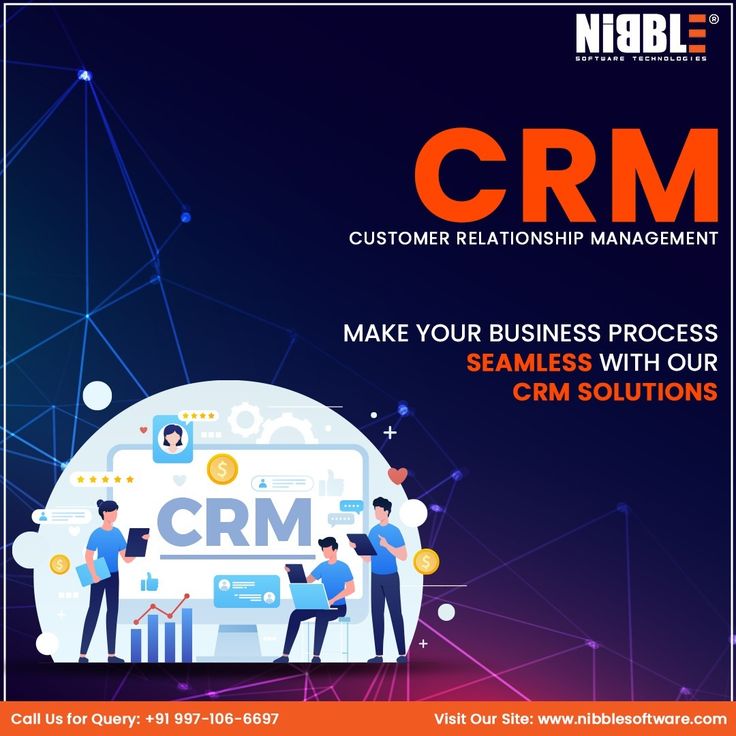
How CRM Can Improve Your Email Marketing Campaigns
In the digital age, email marketing remains one of the most effective ways to engage with customers, nurture leads, and drive sales. However, the success of an email marketing campaign depends heavily on how well you understand and leverage customer data. This is where Customer Relationship Management (CRM) systems come into play. By integrating CRM with your email marketing efforts, you can significantly enhance the effectiveness of your campaigns. This article explores how CRM can improve your email marketing campaigns and help you achieve better results.
1. Personalization and Segmentation
Challenge: Generic, one-size-fits-all emails often fail to engage recipients, leading to low open and click-through rates.
Solution: CRM systems store detailed information about your customers, including their preferences, behaviors, and purchase history. By leveraging this data, you can create highly personalized email content that resonates with each recipient. CRM allows you to segment your audience based on various criteria, such as demographics, past purchases, and engagement levels. This ensures that your emails are relevant and tailored to the specific needs and interests of each segment.
Result: Personalized and segmented email campaigns result in higher open rates, click-through rates, and conversion rates, as customers are more likely to engage with content that is relevant to them.
2. Automated Workflows
Challenge: Manually managing email campaigns can be time-consuming and prone to errors, making it difficult to maintain consistent communication with your audience.
Solution: CRM systems enable you to automate your email marketing workflows. You can set up automated triggers based on customer actions or events, such as welcome emails for new subscribers, follow-up emails after a purchase, or re-engagement emails for inactive customers. These automated workflows ensure that your customers receive timely and relevant communications without the need for manual intervention.
Result: Automation increases efficiency, reduces the risk of errors, and ensures that your audience receives consistent and timely communications, enhancing their overall experience with your brand.
3. Tracking and Analytics
Challenge: Without detailed insights into your email marketing performance, it’s difficult to identify what’s working and what needs improvement.
Solution: CRM systems provide robust tracking and analytics capabilities that allow you to monitor the performance of your email campaigns in real-time. You can track key metrics such as open rates, click-through rates, bounce rates, and conversions. Additionally, CRM analytics can help you understand customer behavior and preferences, enabling you to refine your email content and strategies.
Result: Access to detailed analytics empowers you to make data-driven decisions, optimize your email campaigns, and continuously improve your results.
4. Integration with Other Marketing Channels
Challenge: Disconnected marketing channels can lead to inconsistent messaging and missed opportunities for engagement.
Solution: CRM systems integrate seamlessly with various marketing channels, including social media, SMS, and web platforms. This integration allows you to create cohesive, multi-channel marketing campaigns that deliver a consistent message across all touchpoints. For instance, you can use CRM data to coordinate email campaigns with social media ads or SMS reminders, ensuring that your audience receives a unified and engaging experience.
Result: Integrated marketing efforts lead to more cohesive and effective campaigns, improving overall engagement and maximizing the impact of your marketing efforts.
5. Lead Nurturing and Customer Retention
Challenge: Converting leads into customers and retaining existing customers can be challenging without a systematic approach.
Solution: CRM systems enable you to implement effective lead nurturing and customer retention strategies. By tracking customer interactions and engagement levels, CRM helps you identify where each lead or customer is in their journey. You can then send targeted emails that address their specific needs and encourage them to take the next step, whether it’s making a purchase, signing up for a webinar, or renewing a subscription.
Result: Effective lead nurturing and customer retention strategies lead to higher conversion rates, increased customer loyalty, and a stronger bottom line.
6. Enhanced Customer Insights
Challenge: Understanding the diverse needs and preferences of your customers can be difficult without comprehensive data.
Solution: CRM systems consolidate all customer interactions and data into a single platform, providing a 360-degree view of each customer. This comprehensive view allows you to gain deeper insights into customer preferences, behaviors, and pain points. By analyzing this data, you can create more targeted and relevant email campaigns that address the specific needs and interests of your customers.
Result: Enhanced customer insights enable you to create more effective and impactful email campaigns, leading to higher engagement and satisfaction.
Conclusion
Integrating a CRM system with your email marketing efforts can transform the way you engage with your audience. By enabling personalization and segmentation, automating workflows, providing robust tracking and analytics, integrating with other marketing channels, supporting lead nurturing and customer retention, and offering enhanced customer insights, CRM systems help you create more effective and efficient email campaigns. As a result, you can achieve higher engagement, better customer relationships, and improved marketing ROI. Investing in a CRM system is a strategic move that can significantly elevate your email marketing efforts and drive long-term success for your business.